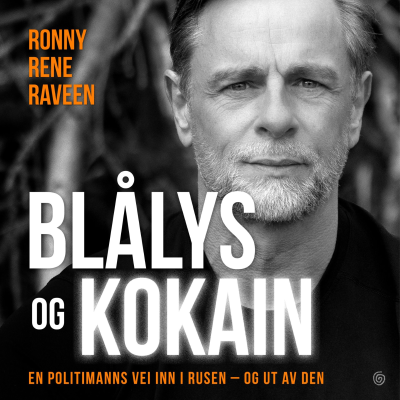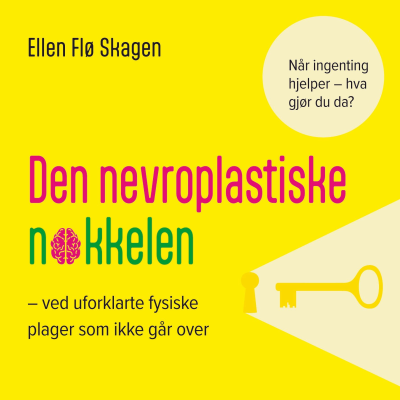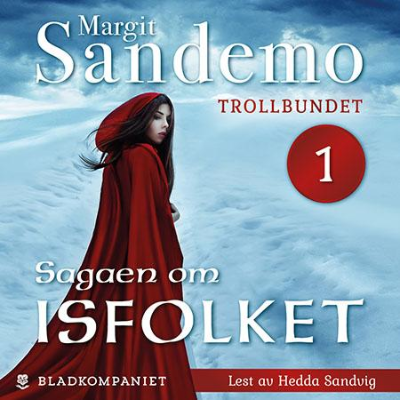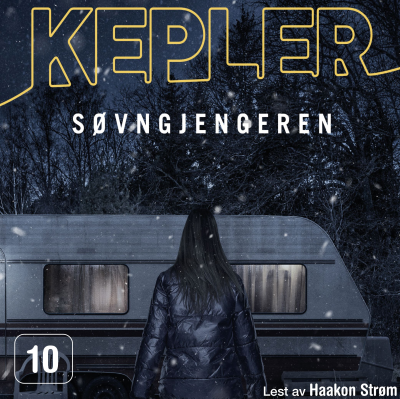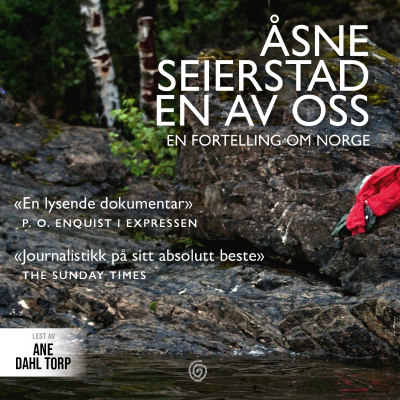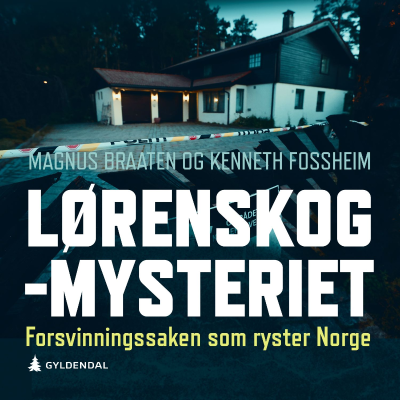
BIC TALKS
engelsk
Personlige historier og samtaler
Prøv gratis i 14 dager
99 kr / Måned etter prøveperioden.Avslutt når som helst.
- 20 timer lydbøker i måneden
- Eksklusive podkaster
- Gratis podkaster
Les mer BIC TALKS
Bangalore International Centre (BIC) is a non profit, public institution which serves as an inclusive platform for informed conversations, arts and culture. BIC TALKS aims to be a regular bi-weekly podcast that will foster discussions, dialogue, ideas, cultural enterprise and more.
Alle episoder
405 Episoder406. Unveiling Islamabad
dynamics in a society steeped in tradition and inviting us to contemplate not just the challenges facing Pakistan but also the boundless potential for change and understanding. This session delves deeper into their experiences, exposing the layers of tradition that shape societal norms, offering a compelling examination of the challenges and opportunities inherent in the region's sociopolitical landscape. In this episode of BIC Talks, Ruchi Ghanashyam and A R Ghanashyam will be in conversation with Latha Reddy. This is an excerpt from a conversation that took place in the BIC premises in Feb 2025. Subscribe to the BIC Talks Podcast on your favourite podcast app! BIC Talks is available everywhere, including Apple Podcasts, Spotify, Google Podcasts, Castbox, Overcast, Audible, and Amazon Music.
405. Planet of the Apps
A cab in five minutes. Groceries in ten. Biryani in twenty. Who really powers your fast, effortless digital life? OTP Please! (Penguin Random House) uncovers the hidden human stories behind South Asia's booming app economy. Vandana Vasudevan takes readers into the lives of gig workers racing against the clock, small sellers navigating the algorithm, and the restless customers who keep tapping 'Order Now.' From India's hyperlocal delivery boys to Pakistan's ride-hail drivers, Nepal's app startups to Bangladesh's e-marketplace sellers, the book reveals the invisible ecosystem that fuels our digital ease – and the costs it quietly extracts. Vandana will be in conversation with Mekin Maheshwari, serial entrepreneur, early Flipkart leader, and Founder & CEO of Udhyam Learning Foundation, exploring the realities, challenges, and humanity behind the apps we use every day. An insightful morning unpacking the human side of technology, offering perspectives that linger long after the screen goes dark. In this episode of BIC Talks, Vandana Vasudevan will be in conversation with Mekin Maheshwari. This is an excerpt from a conversation that took place in the BIC premises in Oct 2025. Subscribe to the BIC Talks Podcast on your favourite podcast app! BIC Talks is available everywhere, including Apple Podcasts, Spotify, Google Podcasts, Castbox, Overcast, Audible, and Amazon Music.
404. Reaching for the Stars
What does it take to dream beyond your time—and make those dreams real? Vikram Sarabhai, founder of India's space programme, imagined communication satellites that would educate people when even a modest rocket launch seemed audacious. He envisioned agricultural complexes powered by atomic energy, sea water turned drinkable, and a modern India fuelled by science and creativity. But Sarabhai was more than a scientist—he co-founded the Indian Institute of Management Ahmedabad, the National Institute of Design, the dance academy Darpana, and India's first textile research cooperative, ATIRA. He also ran a thriving pharmaceutical company and launched India's first market research organisation, ORG. As India navigates its twenty-first century aspirations, this session revisits the humane, imaginative, yet pragmatic vision of a man who built enduring institutions. Drawing from Vikram Sarabhai: A Life, author Amrita Shah offers an intimate portrait of a multifaceted genius whose legacy continues to shape India's present and future. After her talk, she will be in conversation with Jahnavi Phalkey, exploring the many lives and lasting vision of this extraordinary builder of modern India. In this episode of BIC Talks, Amrita Shah will be in conversation with Jahnavi Phalkey. This is an excerpt from a conversation that took place in the BIC premises in Oct 2025. Subscribe to the BIC Talks Podcast on your favourite podcast app! BIC Talks is available everywhere, including Apple Podcasts, Spotify, Google Podcasts, Castbox, Overcast, Audible, and Amazon Music.
403. Gandhi and Savarkar
Between Gandhi and Savarkar lies the story of India's unresolved future. The future of India has long been caught between two irreconcilable visions. Mohandas Karamchand Gandhi and Vinayak Damodar Savarkar were not just men, but embodiments of two enduring ideologies: Hind Swaraj and Hindutva. Their contest was never merely personal; it was a struggle over what India could, and should, become. Partition was one gash on the body of the nation, its scars still visible. Can India afford new wounds? To even attempt an answer, we must return to the old antagonisms – between communities, yes, but also within Hindu society itself. Few rivalries have been as sharp, or as consequential, as that between Gandhi and Savarkar. Based on his new book, Hindutva and Hind Swaraj, this talk reflects on the unresolved gulf between Gandhi and Savarkar. Not as history, but as a question that remains open: can such differences ever be bridged, or are they the fault lines of India's future? In this episode of BIC Talks, Makarand R Paranjape delivers a talk. This is an excerpt from a conversation that took place in the BIC premises in Sep 2025. Subscribe to the BIC Talks Podcast on your favourite podcast app! BIC Talks is available everywhere, including Apple Podcasts, Spotify, Google Podcasts, Castbox, Overcast, Audible, and Amazon Music.
402. Rabia's Journey | ராபியாவின் பயணம்
At its heart, The Dark Hours of the Night is a story about girlhood under constraint, about how adolescence, desire, and freedom are shaped and stifled within the walls of a conservative household. Rabia's journey, woven together with the lives of her friends and cousins, illuminates the subtle negotiations, unspoken rebellions, and fragile solidarities that mark women's coming-of-age in a patriarchal world. The novel opens a conversation about the everyday intimacies of restriction and resistance: the ache of thwarted desire, the bonds of friendship, the weight of silence, and the difficult balance between compromise and courage. It asks what it means to grow up when the future has already been decided, and whether education, love, or even small acts of defiance can shift those boundaries. In this session, Subodh Sankar and Salma will reflect on these resonant themes, of gender, family, power, and the search for selfhood, that lie at the centre of The Dark Hours of the Night and across Salma's larger body of work. இரண்டாம் ஜாமங்களின் கதை என்பது கட்டுப்பாடுகளின் நடுவே வளரும் பெண் சிறுவயதின் கதை. இளமையின் ஆசைகள், சுதந்திரத்தின் கனவுகள் மற்றும் எதிர்பார்ப்புகள், ஒரு மரபுவழி குடும்பத்தின் சுவர்களுக்குள் எவ்வாறு கட்டுப்படுத்தப்படுகின்றன என்பதை இந்த நாவல் வெளிப்படுத்துகிறது. ராபியாவின் வாழ்க்கைப் பயணம், அவளது தோழிகள் மற்றும் சொந்தங்கள் இணைந்து, பெண்களின் வளர்ச்சிப் பாதையில் அமைதியான எதிர்ப்புகள், நுட்பமான சமரசங்கள், சொல்லப்படாத போராட்டங்கள் மற்றும் உறவுகள் எவ்வாறு உருவாகின்றன என்பதை சுட்டிக்காட்டுகிறது. இந்த நாவல் அன்றாட வாழ்க்கையில் காணப்படும் கட்டுப்பாடுகள் மற்றும் எதிர்ப்புகளைப் பற்றி உரையாடலைத் தொடங்குகிறது: நிறைவேறாத ஆசைகள், நட்பு பந்தங்கள், மௌனத்தின் சுமை, சமரசம் மற்றும் துணிச்சலின் இடைநிலைகள். எதிர்காலம் ஏற்கனவே தீர்மானிக்கப்பட்டிருக்கும் சூழலில் வளர்வது என்றால் என்ன, கல்வி, அன்பு அல்லது சிறிய எதிர்ப்புகள் கூட அந்த எல்லைகளை மாற்ற முடியுமா என்பதையும் கேட்கிறது. இந்த உரையாடலில், சுபோத் சங்கருடன் சல்மா, இரண்டாம் ஜாமங்களின் கதை மற்றும் தனது விரிவான படைப்புகளின் மையத்தில் இருக்கும் பாலினம், குடும்பம், அதிகாரம் மற்றும் தனித்தன்மை தேடல் போன்ற கருக்களை ஆராயவுள்ளனர். In collaboration with: Simon & Schuster India In this episode of BIC Talks, Salma will be in conversation with Subodh Sankar. This is an excerpt from a conversation that took place in the BIC premises in Sep 2025. Subscribe to the BIC Talks Podcast on your favourite podcast app! BIC Talks is available everywhere, including Apple Podcasts, Spotify, Google Podcasts, Castbox, Overcast, Audible, and Amazon Music.
Velg abonnementet ditt
Premium
20 timer lydbøker
Eksklusive podkaster
Gratis podkaster
Avslutt når som helst
Prøv gratis i 14 dager
Deretter 99 kr / måned
Premium Plus
100 timer lydbøker
Eksklusive podkaster
Gratis podkaster
Avslutt når som helst
Prøv gratis i 14 dager
Deretter 169 kr / måned
Prøv gratis i 14 dager. 99 kr / Måned etter prøveperioden. Avslutt når som helst.































